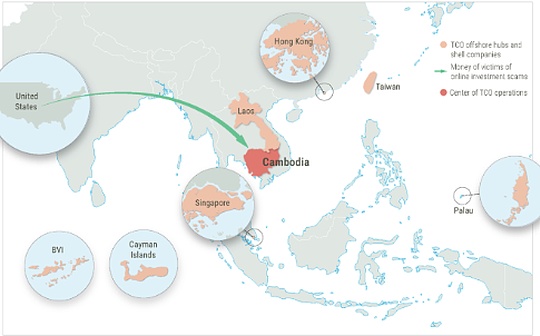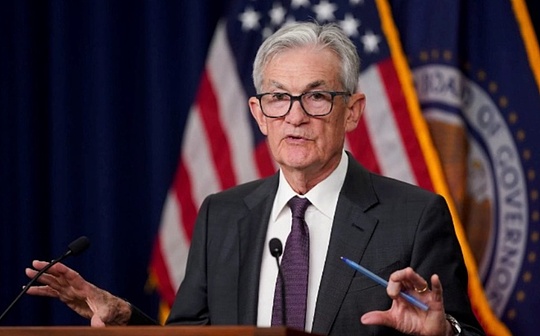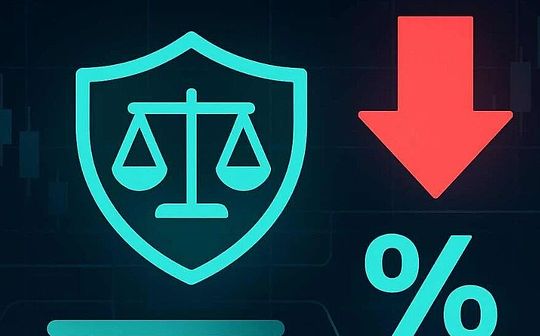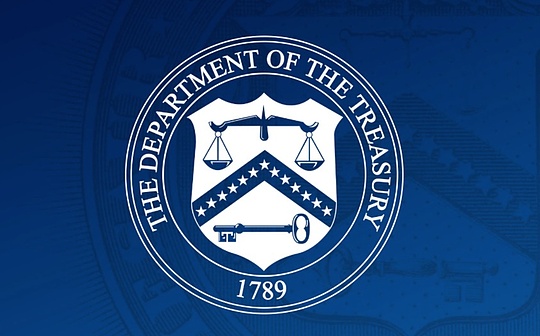
source:U.S. Treasury Department&U.S. Department of Justice;Compiled by: Bitchain Vision
The U.S. Treasury Department’s Office of Foreign Assets Control (OFAC) and the Financial Crimes Enforcement Network (FinCEN), in close coordination with the British Foreign, Commonwealth and Development Office (FCDO), have imposed comprehensive sanctions on 146 members of the transnational fraud criminal organization “Prince Group TCO”.Headquartered in Cambodia and led by Cambodian citizen Chen Zhi, the organization operates a transnational criminal syndicate through online investment fraud targeting the United States and other parts of the world.Additionally, FinCEN removed Huione Group, a Cambodia-based financial services group, from the U.S. financial system under Section 311 of the USA Patriot Act.For years, Huione Group has laundered money for malicious cyber attackers, including proceeds from virtual currency scams and theft.
At the same time, the U.S. Department of JusticeChen Zhi was accused of conspiracy to commit telecom fraud and money laundering, and directed the Prince Group to operate fraud parks across Cambodia.Individuals in these campuses were forced to participate in cryptocurrency investment fraud schemes, known as “killer scams” that stole billions of dollars from victims in the United States and around the world.If convicted, the defendant faces up to 40 years in prison and is still at large.
U.S. Department of Justice Confiscates Bitcoins Proceeds from Prince Group’s Fraud Crimes
The U.S. Attorney’s Office for the Eastern District of New York and the National Security Division of the Department of Justice filed a civil forfeiture lawsuit against approximately 127,271 Bitcoins. These Bitcoins are currently worth approximately US$15 billion and are the proceeds and tools of the Prince Group’s suspected fraud and money laundering criminal activities. They were previously stored in an unmanaged cryptocurrency wallet held by Chen Zhi.The funds are currently held in custody by the U.S. government.The lawsuit is the largest seizure action in the Justice Department’s history.
The indictment and forfeiture suit allege that since around 2015, defendant Chen Zhi has served as the founder and chairman of the Cambodian conglomerate Prince Group, which ostensibly focuses on real estate development, financial services and consumer services.However, the defendants and their executives secretly developed the Prince Group into one of the largest transnational criminal organizations in Asia.Under the instructions of the defendant, the Prince Group carried out cryptocurrency investment fraud and made huge profits by operating fraud institutions throughout Cambodia.
To carry out these scams, malicious actors contact unsuspecting victims via text messages or social media applications and trick them into transferring cryptocurrency to designated accounts with the promise that the funds will be invested and generate income.In effect, these funds are stolen from victims and laundered into the hands of criminals.Scammers often develop long-term relationships with their victims, earning their trust before stealing their funds.
At the instruction of the defendants, Prince Group associates used sophisticated cryptocurrency laundering techniques to conceal the source of the Prince Group’s fraudulent profits, that is, repeatedly splitting large amounts of cryptocurrency into dozens of virtual currency addresses and then remerging them into fewer addresses to conceal the source of the funds.Some of these criminal proceeds end up in wallets on cryptocurrency exchanges, or converted into traditional currencies and deposited into traditional bank accounts.Other proceeds of crime included the defendants’ cryptocurrency, which was stored in non-custodial cryptocurrency wallets whose private keys were held personally by the defendants.The defendants retained charts documenting portions of the cryptocurrency laundering process.The defendants boasted to others that the Prince Group’s mining operations were “significantly profitable because there are no costs”—that is, unlike legitimate businesses, these cryptocurrency mining operations were funded by stolen funds from Prince Group’s many victims.
Huione Group was cut off from the U.S. financial system for allegedly laundering billions of dollars and being involved in a fraud network
Additionally, FinCEN issued a Section 311 final rule to remove Huione Group from the U.S. financial system.The final regulations point out that the Huione Group is a key node in the Southeast Asian organized crime group’s virtual currency investment fraud (commonly known as “hog killing”).It is worth noting that Huione Group laundered at least US$4 billion between August 2021 and January 2025.FinCEN found that of the $4 billion in illicit proceeds, the Huione Group laundered at least $37 million in cyber-theft of virtual currency, at least $36 million in virtual currency investment fraud, and $300 million in other cyber-fraud of virtual currency.
Through the final rule, regulated financial institutions are now prohibited from opening or maintaining correspondent accounts for or on behalf of the Huione Group, and are required to take reasonable steps not to process transactions involving the Huione Group for correspondent accounts of foreign banking institutions in the United States, thereby preventing the Huione Group from indirectly entering the U.S. financial system.
The Prince Group was identified as a transnational criminal organization
The Prince Group transnational criminal organization consists of the Cambodian Prince Holdings Group, its chairman and CEO Chen Zhi, his associates and business partners, and their core business interests, all of which operate to further the criminal activities of the Prince Group transnational criminal organization.This multinational conglomerate invests in entertainment, finance and real estate.Prince Holdings Group’s promotional and marketing materials concealed its series of transnational criminal activities, including building, operating, and managing fraud campuses, and conducting large-scale online fraud activities that targeted victims all over the world, including U.S. citizens.
Today, OFAC sanctioned an additional 117 enterprises affiliated with the Prince Group’s transnational criminal organization network, the vast majority of which are offshore shell companies that do not engage in any apparent real commercial or business activities, as well as one associated official.OFAC has determined that these entities and individuals are actually owned or controlled by, or purport to act on behalf of, companies that are members of the Prince Group’s transnational criminal organization.The targets were designated as part of the Prince Group’s transnational criminal organization network under Executive Order 13851.
In addition, the U.S. Department of the Treasury is also investigating the operations of the Prince Group’s transnational criminal organization network in Palau.The Prince Group worked with known organized crime groups to lease an island and set up a resort.The move by the Treasury Department is intended to support Palau’s ongoing efforts to guard against predatory investments by transnational organized crime groups.
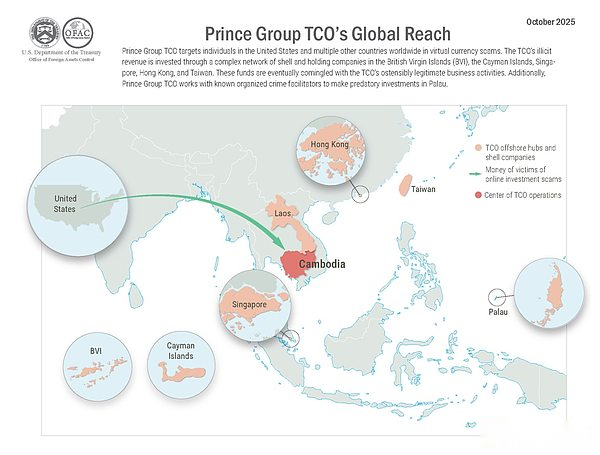
Members of the Prince Group’s transnational criminal organization collaborated in actual criminal activities
Chen Zhi worked closely with the vice chairman and financial assistants who managed the various subsidiaries of Prince Group Holdings to control the flow of billions of dollars in illegal funds.These associates oversaw the operation of legal and illegal activities and liaised on Chen’s behalf with banks, government officials and other knowing and unknowing partners.Together, these people constitute the Prince Group’s transnational criminal organization and its core business interests.Today’s operation targeted multiple members and associates of the Prince Group’s transnational criminal organization, including Guy Chhay, Lei Bo, Ing Dara, Zhu Zhongbiao (aka Jack Zhu), Sin Huat Yeo (aka Alan Yeo), Zhou Yun (aka Sandy Zhou), Chen Xiuling (aka Karen Chen), Wei Qianjiang, and Thet Li.
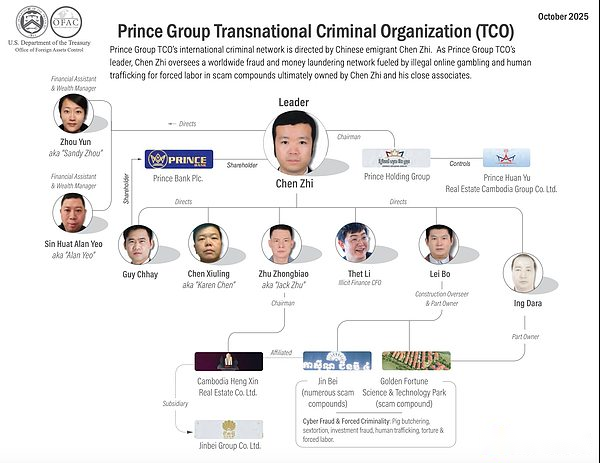
Guy Chhay, Zhu Zhongbiao and Ing Dara are directors of Cambodia Hengxin Real Estate Investment Co., Ltd., which is also involved in the fraud business of the Prince Group’s transnational criminal organization and is the parent company of Jinbei Group.Guy Chhay is a former director of Jinbei Group and is currently one of two shareholders of Prince Bank.
Lei Bo was the former chairman of the board of directors of Prince World Real Estate (Cambodia) Group Co., Ltd. and was responsible for overseeing the construction of the Golden Fortune Resort World Co., Ltd. fraud complex (also known as the Golden Fortune Technology Park), which is located near Chrey Thum, a village in southern Phnom Penh.He and Ing Dara own the Golden Fortune Scam Park.
Sandy Zhou and Alan Yeo serve as Chen Zhi’s financial assistants and wealth managers.They were responsible for coordinating large wire transfers, dealing with banks, managing accounts, and working to cover up the corrupt and criminal activities of Prince Holdings Group.Karen Chen manages Prince Holdings Group companies in Mauritius, Taiwan and Singapore.In corporate documents, she is listed as the ultimate owner of several companies controlled by the Prince Group’s transnational criminal organization that share the same Singapore address, including the holding company that manages Chen Zhi’s luxury yacht.
Thet Li is a close associate of Chen Zhi and is actually the chief financial officer of the illegal finance of the Prince Group’s transnational criminal organization.Thet Li was involved in bulk cash smuggling and managing black money in the Prince Group’s financial flows.
Wei Qianjiang manages Laos Warp Data Technology Lao Sole Co., the Prince Group’s transnational criminal organization’s Bitcoin mining operation in Laos.This company has transferred a large amount of Bitcoin to a wallet controlled by Chen Zhi.
OFAC designated the Prince Group Transnational Criminal Organization as foreign persons constituting a significant transnational criminal organization pursuant to Executive Order 13581, as amended, naming Chen Zhi, Lei Bo, Zhu Zhongbiao, Guy Chhay, Ing Dara, Thet Li, Chen Xiuling, Wei Qianjiang, Jinbei Group Co., Ltd., Jincai Fortune Resort Co., Ltd., and Warp Data Lao Sole Co. Ltd.The companies are included on the list because they are directly or indirectly owned or controlled by, or have acted for or purported to act for or on behalf of the Prince Group transnational criminal organization.
OFAC also designated Prince Holdings Group, Prince Bank Limited, Sin Huat Yeo and Zhou Yun as being directly or indirectly owned or controlled by Chen Zhi, or as having acted or purporting to act on behalf of Chen Zhi, pursuant to Executive Order 13581, as amended.
OFAC placed Prince International Real Estate Cambodia Group Co., Ltd. on the sanctions list under Amended Executive Order 13581 because the company is directly or indirectly owned or controlled by Prince Holdings Group or has acted or purported to act on behalf of Prince Holdings Group.
Organized crime facilitated Prince Group’s predatory investments in Palau
The Prince Group’s transnational criminal organization collaborated with Wang Guodan, also known as Rose Wang, the leader of the Palau organized crime gang, to build a luxury resort in Palau.Grand Legend International Asset Management Co., Ltd. is a company controlled by Chen Zhi in Palau and is affiliated with the Prince Group’s transnational criminal organization.Grand Legend secured a 99-year lease on Ngerbelas Island in Kayangel Province, Palau, where it is currently developing a luxury resort.Chen Xiao’er and Yang Jian are the directors of Grand Legend.Yang Yanming, Shih Ting-yu, Michelle Reishane Wang and Huang Chieh are members of Grand Legend’s Palau management team.
Rose Wang is a Palau hotelier and transnational organized crime facilitator who helped the Prince Group transnational criminal organization establish business interests in Palau.Rose Wang was in charge of local administration for Grand Legend and helped the company secure the lease on Ngerbelas Island.
Jing Pin Inc. and Aqua Pure Water Inc. are two companies in Palau owned or controlled by Rose Wang.Jing Pin Inc. is a hotel and catering company.Aqua Pure Water Inc. is a bottled water company.
OFAC added Grand Legend International Asset Management Co., Ltd. to the list pursuant to Executive Order 13581, as amended, because the company is directly or indirectly owned or controlled by Chen Zhi or has acted or purported to act on behalf of Chen Zhi.
OFAC designated Chen Xiao’er, Yang Jian, Yang Yanming, Shih Ting-yu, Michelle Reishane Wang, and Huang Chieh as suspects under Executive Order 13581, as amended, because they are directly or indirectly owned or controlled by Grand Legend or have acted or purported to act on behalf of Grand Legend.
OFAC designated Rose Wang pursuant to Executive Order 13581, as amended, for providing material assistance, sponsorship, or provision of financial, material, or technical support, or provision of goods or services to Grand Legend.
OFAC blacklisted Jing Pin Inc. and Aqua Pure Water Inc. under Executive Order 13581, as amended, because the companies are owned or controlled, directly or indirectly, by Rose Wang, or have acted or purported to act for Rose Wang.
impact of sanctions
As a result of this action, all property and property interests of the above-mentioned sanctioned individuals in the United States or held or controlled by U.S. individuals have been frozen and must be reported to OFAC.In addition, any entity in which 50% or more of the equity is owned directly or indirectly, individually or in aggregate, by one or more sanctioned persons will also be frozen.Unless authorized by a general or specific license or exemption issued by OFAC, transactions by U.S. persons or within (or in transit through) the United States involving any property or interests in property of designated or otherwise blocked persons are generally prohibited by OFAC regulations.
In addition, persons who engage in certain transactions with the individuals and entities designated today may themselves face sanctions or enforcement action.Non-U.S. citizens are also prohibited from causing or conspiring to cause U.S. citizens to intentionally or unintentionally violate U.S. sanctions and engage in conduct that circumvents U.S. sanctions.OFAC’s Economic Sanctions Enforcement Guidance provides additional information on OFAC’s enforcement of U.S. sanctions, including factors OFAC generally considers when determining the appropriate response to apparent violations.The effectiveness and integrity of OFAC sanctions stem not only from OFAC’s ability to designate and place relevant persons on the Specially Designated Nationals (SDN) list, but also from its willingness to legally remove relevant persons from the SDN list.The ultimate goal of sanctions is not to punish, but to promote positive changes in behavior.

